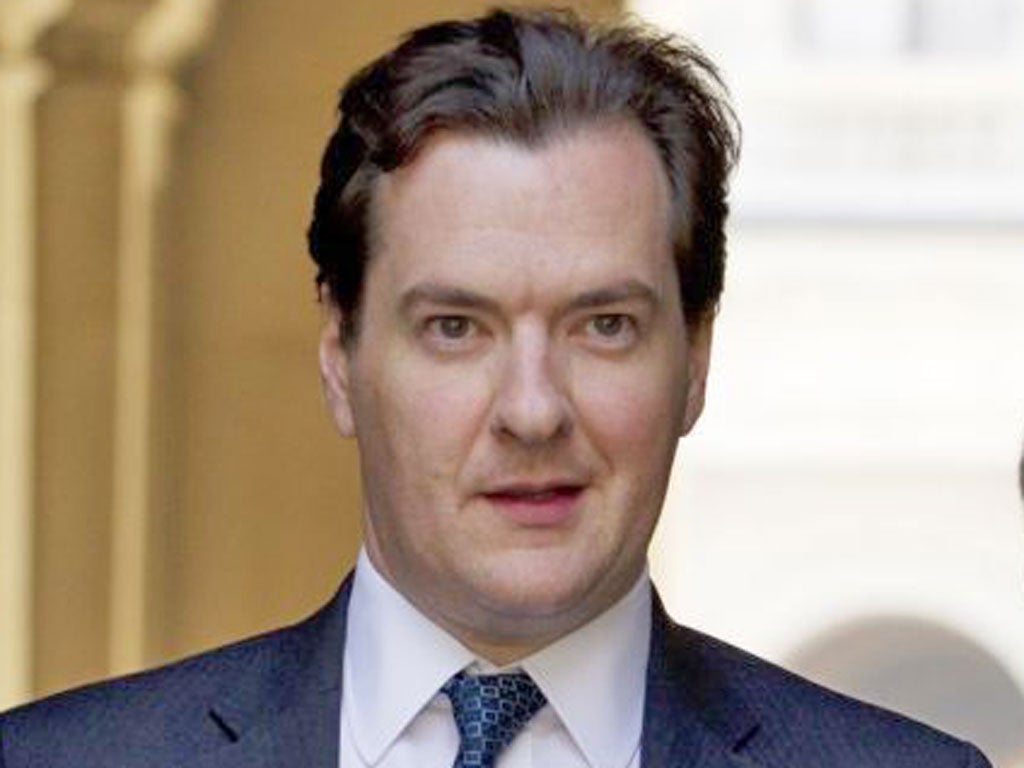Don't know your debts from your deficits? You're not alone
Public, MPs and even headline writers are confused, reports Andrew Johnson

It's not just the politicians who are in a muddle about the economy. Research published today reveals that only a tiny proportion of Britons understand the difference between debt and deficit – or know which one the Government is trying to reduce.
The austerity drive may have dominated the country's political life over the past two years, but there remains widespread public ignorance over the intentions of the Coalition's cuts.
And the report by the Centre for Policy Studies think tank shows that the Prime Minister, his deputy and the Chancellor have all fed this confusion by making "misleading" claims about their financial plans. So has Labour leader Ed Miliband and even the BBC's respected political correspondent Nick Robinson – together with most of the country's headline writers.
According to the CPS research, only 10 per cent of Britons know that the Government's cuts package is projected to increase the national debt by around £600bn by 2015. Many more (47 per cent) assume – incorrectly – that the Government wants to reduce the debt by this amount.
The confusion, which the think tank warns could have disastrous consequences for the Tories and Liberal Democrats when voters realise their error, stems from "debt" and "deficit" being used interchangeably.
In fact, the UK's debt is the total amount the country owes historically, while the deficit is what is added to that debt each year.
Ryan Bourne, head of economic research at the centre-right CPS and the report's co-author, said the Coalition intended to reduce the deficit more quickly than the previous Government had planned, and had a firm target for the ratio of debt to GDP to be falling by the end of the Parliament.
"The Government has often said that it wants to pay the nation's credit card off," he said. "But if it wants to use that analogy correctly, it should be saying that it wants to reduce the amount that is added to the credit card debt each year – that is, reduce new borrowing."
The report, called A Distorted Debate, argues that the difference is important as voters need to be clear at the next General Election whether the Coalition has delivered on its promises. "If many of those currently in support of the Conservative and Liberal Democrat parties, who believe that they intended to reduce debt, are suddenly told that this is not, in fact, the case – what is this likely to mean for the electoral chances of those parties?" the report asks. Mr Bourne added: "I'd like to see George Osborne clearly set this out. The Government's plans were reliant on optimistic tax revenue forecasts. But growth has not been what was expected. I suspect we are getting to the juncture where the Coalition is going to have to do something different. Unless people are aware of the true state of public finances it's going to be difficult for the Chancellor to make the changes that he thinks he needs to make."
The report also claims that the Coalition isn't being completely honest about its achievements to date. While it has reduced the deficit by 25 per cent as it claims, this isn't what it set out to do.
Its original target was to eliminate what is called the "current structural deficit". Whereas the deficit is the difference between what the Government has coming in and what it spends, the "current structural deficit" is a stubborn portion of everyday over-spending which would still remain even if the economy was booming. That has only been reduced by 13 per cent thus far, and on current trends won't vanish until 2016/17, the report claims.
"Most people today seem unclear about both what the Coalition is trying to achieve with the public finances; and what it has actually achieved so far. There must be a danger for the Coalition parties that this could easily be exploited during public debate in the build-up to the next election," the report says.
In the red: Terms of confusion
George Osborne, chancellor
“We should never take our eyes off the prize: a British economy freed from its debts”
Eric Pickles, Minister for Communities and Local Government
“Ed Miliband and Ed Balls fail to realise that when you're up to your neck in debt, it's time to pay it off”
Nick Robinson, BBC Political Editor
“George Osborne is currently failing in his own terms... in his efforts to cut the debt and the deficit”
Max Hastings, journalist writing in the Daily Mail
“Privately, few members of the Cabinet claim their programme for economic recovery goes much beyond cutting debt”
Debt or deficit? Pop quiz
What is the difference between debt and deficit?
a) No difference.
b) My head hurts.
c) Debt is the total amount owed, deficit is the amount added to the debt each year.
What's the difference between deficit and structural deficit?
a) It's too complicated to explain.
b) My head really hurts.
c) Deficit is the annual difference between income and outgoings. Structural deficit is the persistent difference between income and outgoings that remains even when the economy is at maximum performance.
What is the difference between per cent, and percentage point?
a) Per cent is the unit, percentage point is the fraction of the whole.
b) I never could do per cents.
c) Per cent is the fraction of the whole, percentage point is the actual unit.
How did you do?
Mostly As: Go to the back of the class.
Mostly Bs: Don't feel bad. We all get confused.
Mostly Cs: Do you work for the Bank of England?
Join our commenting forum
Join thought-provoking conversations, follow other Independent readers and see their replies
Comments
Bookmark popover
Removed from bookmarks